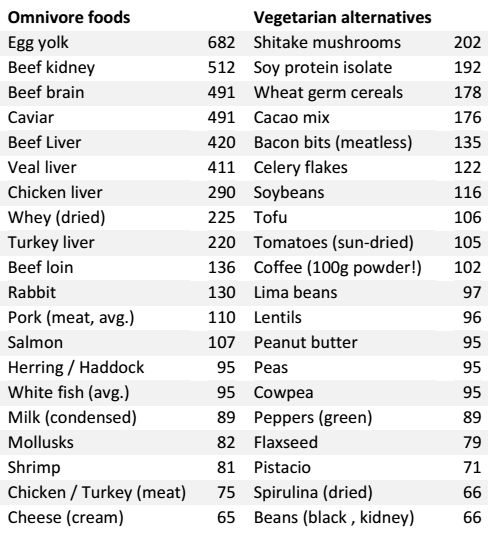Frankdee20
Member
I find it a bit mind bottling when people are concerned with supplementation of choline to complement diet until repletion for fear of potential problems with methylation, but at the same time consume something like 2.5 g of methionine a day through cheese.
This is the quote that often appears:
Protective CO2 and aging
"Methionine and choline are the main dietary sources of methyl donors. Restriction of methionine has many protective effects, including increased average (42%) and maximum (44%) longevity in rats (Richie, et al., 1994). Restriction of methyl donors causes demethylation of DNA (Epner, 2001). The age accelerating effect of methionine might be related to disturbing the methylation balance, inappropriately suppressing cellular activity. Besides its effect on the methyl pool, methionine inhibits thyroid function and damages mitochondria."
From what I read, methionine restriction can be harmful and producing the counters if there's a choline deficiency.
I'm not disregarding that it can be indeed an issue, especially when you supplement in the adsense of other vitamins or a lot. I also might be missing something, such as choline providing more methyl groups per molecule, or turnover rates of each, but perhaps a greater concern than too much, is too little of it. With excess you're able to control it, niacin is one of the ways. But what can the body do in a deficiency? Chronic insufficieny is quite stressful and you can confirm it through the fast elevation in liver enzyms that happen in choline experiments in a matter of days/weeks. How is this not carcinogenic?
For me, it’s easier to restrict Choline food choices as it’s easily identifiable in eggs, liver, fish, broccoli and milk. I’ve got no idea how to restrict methionine

